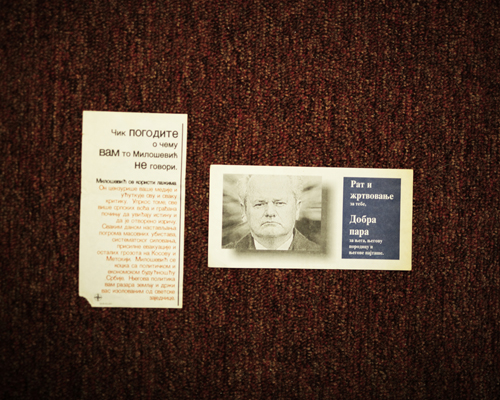
NATO flyer dropped on Belgrade.
On the right one, next to Slobodan Milošević portrait :
"War is a sacrifice for you. For him, his family and friends it's good money."
During summer 2000, former Serbian President Ivan Stambolić was abducted, his body was found in 2003. Milošević was charged for ordering the assassination. Slobodan Milošević was found dead in his cell in March 2006, inside the detention center for war criminals in The Hague, The Netherlands.
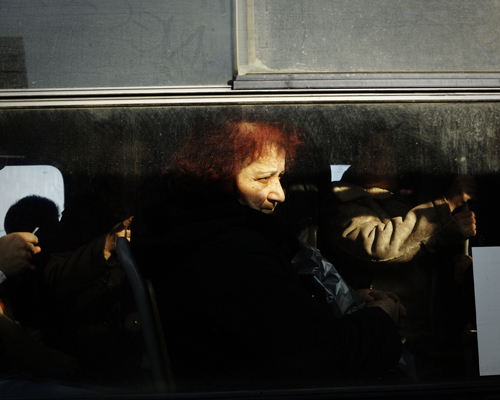
Bus 96.
"...and it was meant to be like this because the former government made a lot of mistakes so this one needs to correct them all. We have a systematic issue like money drain, money is just running out of institutions, and nobody knows where it goes."
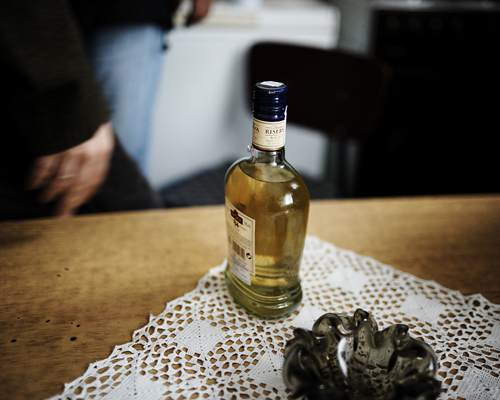
Krnjaca refugee camp.
"We came from Knin in Croatia. I was a biology teacher. I was in Knin during Storm Operation, my wife and sons escaped before those days. Since we are in Serbia, it is the 20th year we are spending as refugees, this is the second camp."
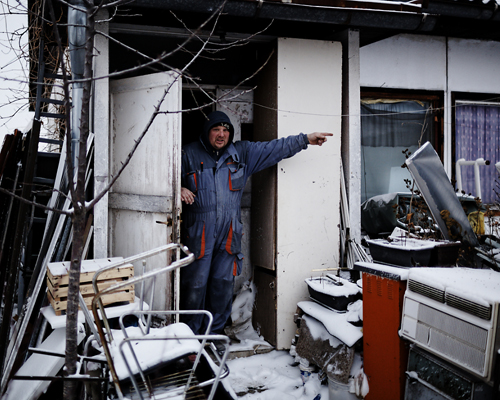
Krnjaca refugee camp.
"We have two sons, one of them live with us, the other one got married and is now living in the USA. We witnessed murder, rape, ethnic cleansing of our people. We have been visited by UN, the Serbian government, NGO, etc... The worst is not knowing what tomorrow will bring, the insecurity ruins nerves."
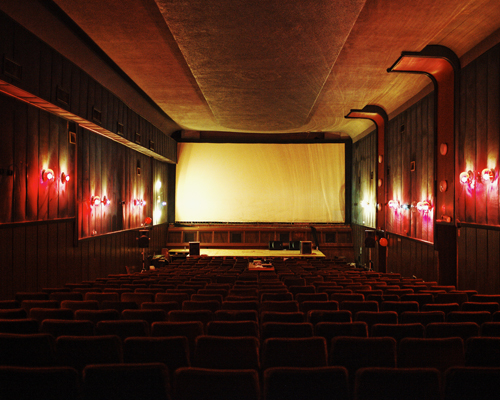
"Our purpose here is to set a place where people can watch non-commercial movies, as well to support Serbians directors. Around a year ago, a hundred of us took over the theater, it was a spontaneous action... Since then, we are here. The authorities ignore us and our demands. We wrote several times to the Minister of Culture... We have support from directors and comedian. Michel Gondry made a short to support us, we are screening it before each projection. It's free, but you can donate for food. We are going to start a kickstarter to fix the theater, projector and screening room first."
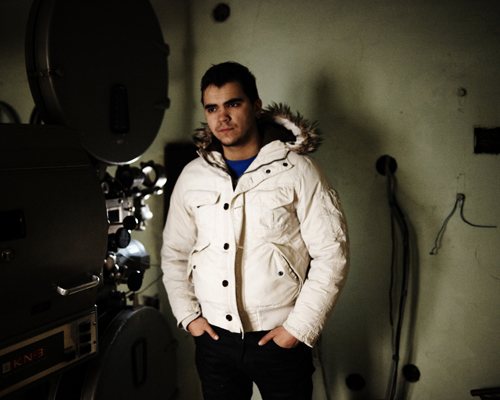
Zvezda theater. Luka, with the 35mm projector for the open air screen.
"We had trouble a few days ago, one guy destroyed the digital projector... We have one but it is not that good, it will take some days before it works again. That one, we expect to x it for this summer."
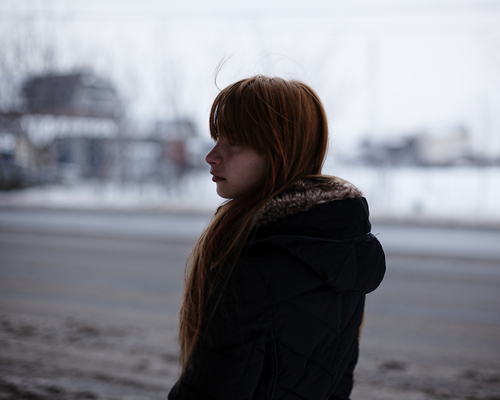
Borča neighborhood.
"We are aware of the fact that all changes and reforms are painful by themselves, but once we survive them, we are sure we can expect a better future."
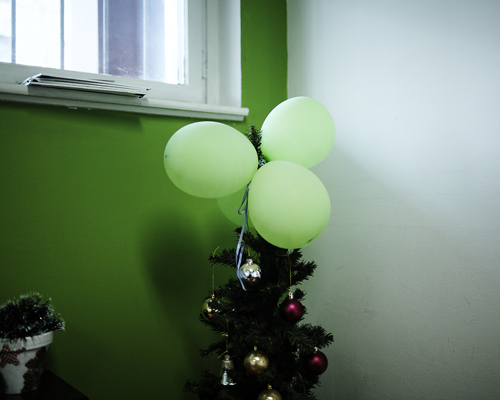
Centar za integraciju mladih dropping shelter. Blok 38, Novi Beograd.
"This is the only category of children that we are working with. Children who are involved in living or working in the streets of Belgrade. Sometimes we have children from some other city in Serbia, but they are here in Belgrade at the moment and they can use our services. Our NGO, Centar za integraciju mladih (Center for Youth Integration), have different projects and programs for street involved children. We have those two dropping shelter, they are the only places where children can come in. We are doing field programs, like visiting settlements were children are living, their workplace, where they spend free time, and so on."
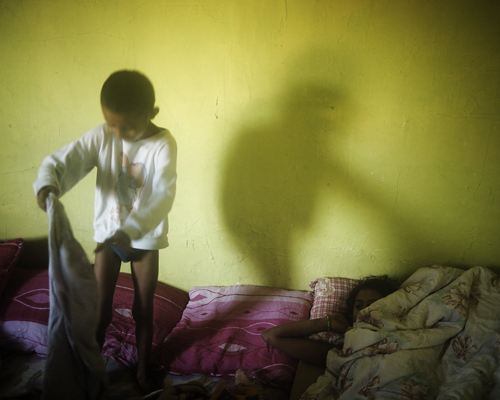
Roma settlement, Novi Beograd.
"We have example of children who have finished primary school and are now enrolled in secondary school... but unfortunately none of them escaped from poverty. Now they have higher levels of education, thus they have the opportunity to work something, not just to beg or wash car at a crossroads. They still don't earn enough money, I assume that is because they are coming from Roma community."
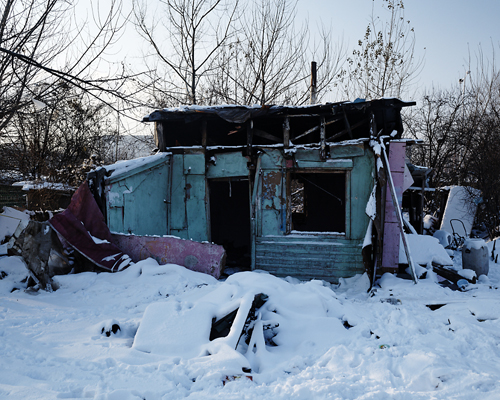
Roma settlement, Novi Beograd.
"We are visiting around 25 settlements in Belgrade. We have at the moment around 400 active beneficiaries of our services. Around 280 are visiting our two dropping shelters on a monthly level, the rest of them we are visiting on the field. From the 400 active beneficiaries, there is also the members of their family, so we are working with a large number of people on a daily level. I think 99.9% of the children are from Roma community."
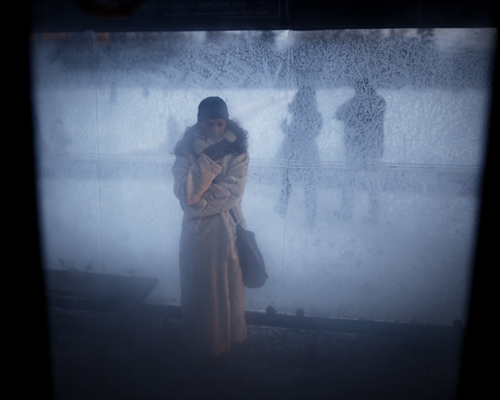
Mihajla Pupina boulevard.
"The worst period is winter, two years ago in 2012 it was a terrible winter all over Europe. We had a guest from Japan news agency, he was doing stories about homeless people in Europe. He told us he was pleased with Belgrade because he saw fewer homeless than in other big cities. It is because -I think- that the state is funding us in Serbia while in others country it is up to NGO and religious organisations."
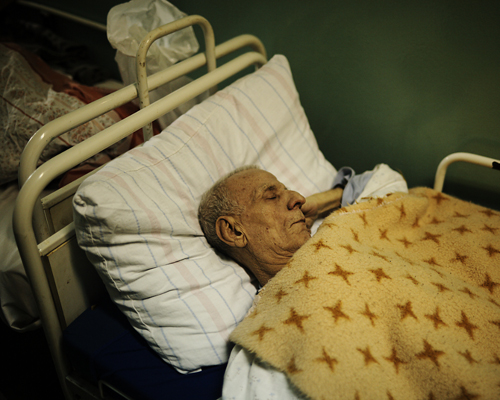
Kumodraška Shelter for Homeless People. Voždovac area.
"This institution's aim is to help people, homeless peoples, elder peoples in an emergency situation. We are a social sector emergency service. Every peoples are welcome here, with psychic issues, Roma - they are around 20% of the peoples here - our highest percentage in term of community. We got our budget from the City Hall, our capacity is up to 104 residents, but we are now with around 130... it was built for 40."
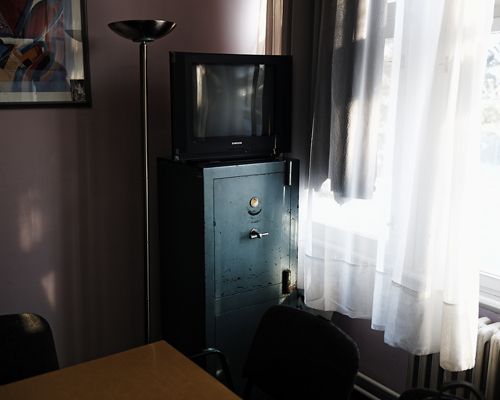
Kumodraška Shelter for Homeless People. Voždovac area.
"People can stay here up to six months. With the cold, we expect to reach 200 residents, we will put disposable beds, it is better to use improvised solution than letting people on the streets. 10% to 15% of persons who came here on a year level, they come from former Yugoslavia country, they tend to forget that we are not a single country anymore."
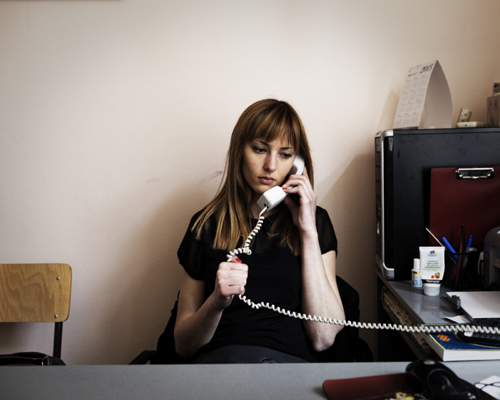
Kumodraška Shelter for Homeless People. Voždovac area.
An employee in her office,originally from Kosovo, she came to Belgrade to study and stayed as there is "no real future for the Serbs in Kosovo anymore."
”We do not have break in our job, either we are preparing to accommodate peoples during winter, either we are actually doing it. We also work around the clock. We try to send elderly to gerontology centers, those places are their way out of here. When they come here, they are in terrible hygienic conditions, our responsibility is to take care of them until we solve their problems permanently, not temporarily.”

Blok 70, Yuri Gagarin Street.
"Serbia is hungry for investments, you can invest in Serbia and live here nicely, the only things that need to change is the mindset of some people, and when that happens, we’ll move on."
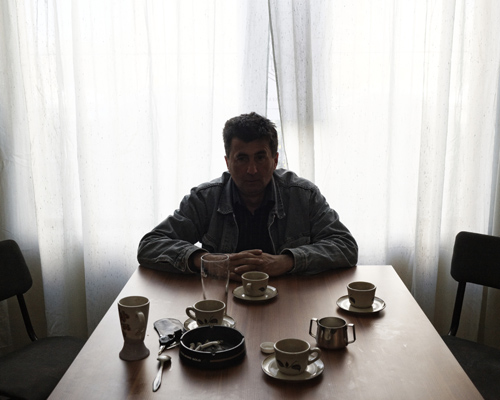
A former soldier from the Yugoslavian Wars at a veteran association local in Zemun, Belgrade.
"After ve years of war, I have no veteran right, not in Serbia not in Croatia... I won’t tell you my story, but I can let you know the one of my twin brother, both of us enlisted when we were young, we are 47 years old now. War crimes were committed by both side, and I understand that those responsible must be prosecuted, but at the time we thought we were ghting an honorable ght. So, my brother was a bus driver. Until 2006, we lived our life.
One day, insomnia came, anxiety, his eyes were red. When our mother was still alive, he went to the doctor, but he never accepted that this was happening to him. He tried to be the same guy, but he wasn’t. He started to drink heavily, he lost his job, meantime our mom passed away, he became more aggressive to my wife and me. He stayed alone in a house he built and savaged it, he was violent to everyone and everything in his environment. Total isolation came. Then winter. I found him naked and starved. He survived because of me, not thanks to the state. From a very silent man, he became an entirely di erent one. No institutions agreed to take him in. He is an outcast."
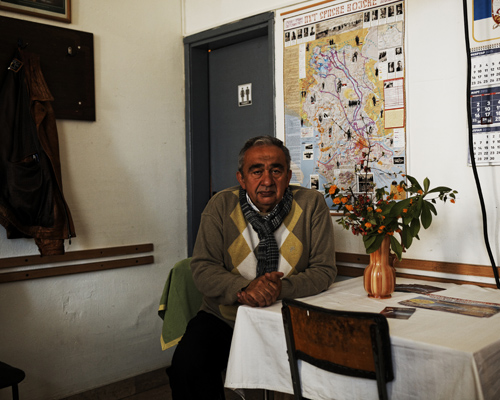
A former red cross worker at a veteran association local in Zemun, Belgrade.
"Those who lost limbs got some help from the state, it’s not much, but it’s something... with PTSD, we don’t have access to any help. It’s a hidden disability.
I was in charge of civilian protections. We used radio amateur club, radio amateurs are protected by international conventions and can not be a target during war clashes. We were able to put displaced people in touch with one another. I witnessed refugees camps, exhumation from mass graves; that’s why I got into the wars veteran association...
War by nature causes PTSD... The nationalist aspect and the genocide were terrible. I thought of myself as someone mentally strong; I was wrong. I was in Vukovar... On the second oor of a house, there were the father, the mother and two children. They were slaughtered, the arms of the woman put in her breast, like gloves. A terrible smell appeared, I closed the door and ran away. Three hours later I started to sweat from my hands; it wouldn’t stop. The doctor told me I had a nervous stress. The smell wouldn’t leave me; it was in my clothing every day until I left the service and things settled down."
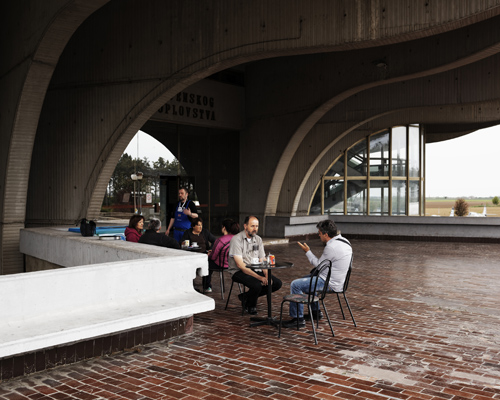
Aviation museum, near Nikola Tesla airport. Surčin.
"I love my wife. At night I have nightmares, I’m screaming, it happens that in my dreams I beat my wife. Pictures from the past are haunting me, now everything is burned down. We are lying to ourselves with false hopes, and hopes don’t last very long."
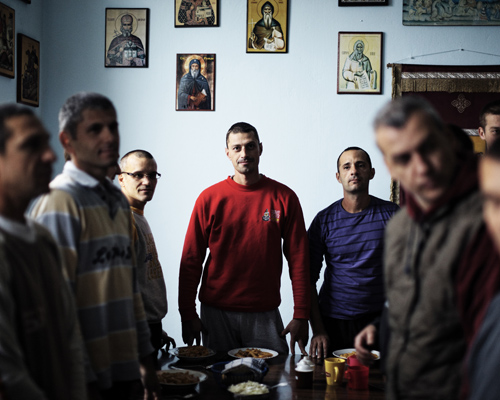
Prayer before lunch in a community of The land of the living center for drug addict near Novi Sad.
Men come from di erent background : from farmer to director of a prestigious artistic institution. Addictions are from alcohol to heroin through gambling. Age are from early 20’s to late 40’s. Sometimes addicted for up to 25 years. Some are in the community for a year.
"The Land of the Living has a ten years existence. There is six community, one of them for women. It is under the Hospice of the Orthodox monastery of Kovilj, it is a Church project. We collaborate with the city of Novi Sad. It is entirely free, no medicine is used. People are here by their own will, they can leave if they want. Lately, people do more speed, cocaine, ecstasy than heroïn."
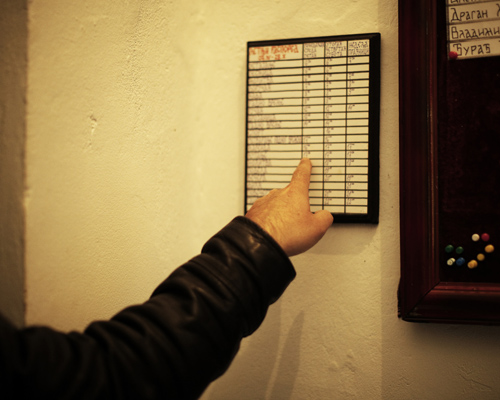
In a community of The land of the living center for drug addict near Novi Sad.
"At lunch, if you curse, you’ll have to stand up in front of everybody and apologize, you’ll have to do the dishes for the day too. They wake up at 6:30 am and go to sleep at 10 pm, nobody is allowed to lay in bed before 21h30. You can sit, you can rest but not lay. Toilets seats are tied up position. No TV, one movie a week. No physical contact. After six months they can see their family for a couple of hours. After a year they go home for three weeks. Then three weeks every six months. After three years it is one month here, one month at their place, weekends... The success rate is around 80% when they get back to society."
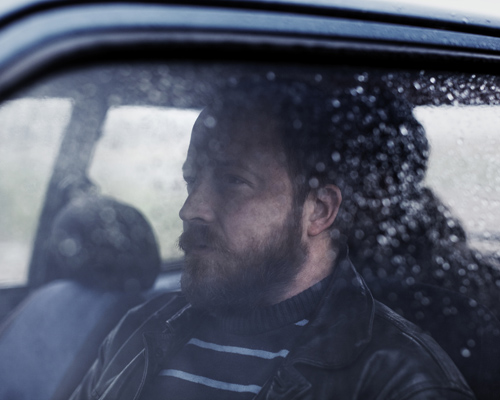
Andrei.
"I was here because I was a drug addict. Five years ago I started to volunteer here, for two year, I’m a coordinator. You start because you are curious, because you want to be cool, because you lack con dence. You got to accept your past and face it before you go back outside, the fact that you’ll be okay is not granted. Quitting is very hard, it’s not something that people outside understand very well. You can come here still intoxicated, but there is no medical treatment, it’s more about the aftermath. After several years of being an addict, you don’t know who you are anymore, your only identity is that you are an addict, to you and your surrounding."
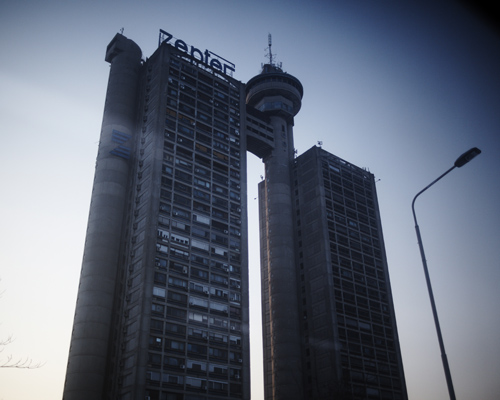
Genex tower. The cylindrical element in the summit had to be a revolving restaurant. It has never opened. Belgrade.
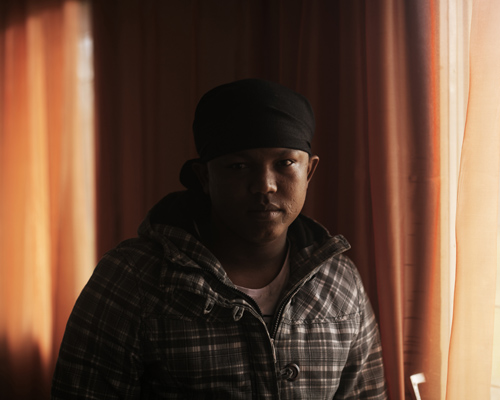
Krnjaca refugee camp.
"I’m 19. I’m from Somalia. I left seven months ago. I came here from Greece, before that : Turkey. Crossing the sea was frightening. Around 65 people on a boat. The driver didn’t know the way. People from Syria, Pakistan... The Greek coast guard told us to go back to Turkey. We say we will never go back, kill us here. The driver cut the boat with a knife, they had to rescue us. I was working in Mogadiscio, daily jobs. I left six sisters, two brothers, my mother is dead. Today is not that bad in Mogadiscio, in four days Al-Shabab may come. My future I don’t know, only gods know."
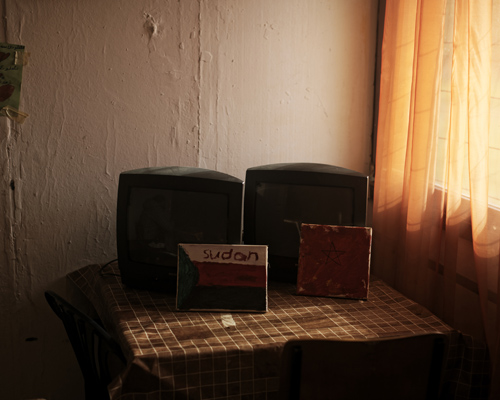
Krnjaca refugee camp.
"There are Syrians near the bus station. They set some tents. From what I could hear, peoples in Serbia seems to be nicer to them than in Bulgaria or Hungary. I think it’s because many people in Serbia knows what war is."
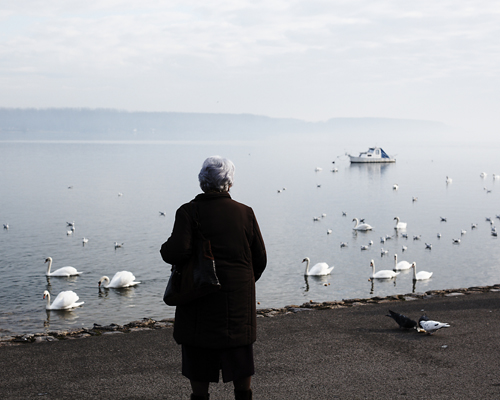
Danube river.
"My future, I hope that one day my wife, my son and I will have a morning co ee watching at the colors of our home. It’s our dream, will it be ful lled it doesn’t depend on us. We asked authority many times in the past twenty years. As the Danube rivers ow, that’s how our days goes. Sometimes we are happy, sometimes we are sad, sometimes it rain, sometimes it snow."
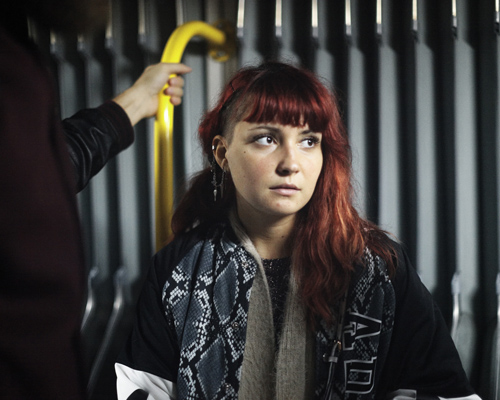
Maja, born in 1990.
"I remember the initial shock from the rst bombardment of 1999 that fell near our place. My parents had to slap me to take me back to reality. After that, the thing came back to normal. My parents were frightened, shop’s shelves got empty... My father worked for a local TV channel. From his o ce, he could see the bombs in front of his eyes. One day, he was with a friend, they had to evacuate the building. When they got out, a bomb exploded, his friend lost both his legs."
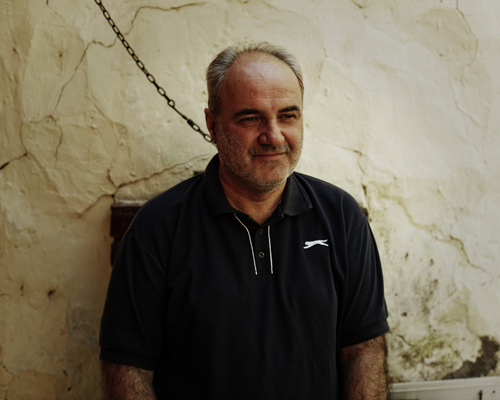
Bratislav, born in 1958. Maja’s dad.
"I watched the 1999 bombing of the defense ministry live, not on TV, live with my eyes. When they also hit the national TV building, we, at Studio B also had to move, we were scared of being targeted too. Even if it was an opposition TV, unlike RTS which was Milošević puppet TV... they were picturing NATO as Serbia worst enemy ever, unlike us, dealing with facts. One of my friends was working technical team at RTS died, he told me the night before he wasn’t going to live to see another day... He was hit directly, nothing of him was left to be found. We had «war schedule,» working 12h shift to be able to cover everything. I was constantly thinking about Maja and my wife. After few days, we weren’t running for shelter anymore. What was striking was the silence after the bombing: no planes, no sirens, no explosions... Life keeps going on."
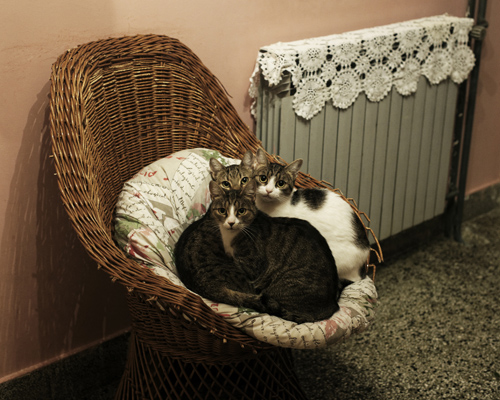
Svetislav daughter’s cat’s. Borča neighborhood.
"Her mother, she is a capitalist."
Svetislav lived in Paris with his parents when he was a child. They built the house he is sharing with his daughter, he got the ground oor, she got the rst oor. They didn’t run away from Tito, their plan was to come back and build. He is de ning himself as a «punk-anar». He doesn’t carry any ID, he buys his tobacco on the black market and is a former alcoholic.
He is living of selling communist and post-USSR «artefact» : Yugoslav punk vinyl, magazines, books, etc. Under Tito, he used to do some smuggling: bringing car parts back from Greece or sold bananas in Ceausescu’s Romania for 50 Lei a piece, even at that price, people were ghting over it.
He didn’t want his picture taken.
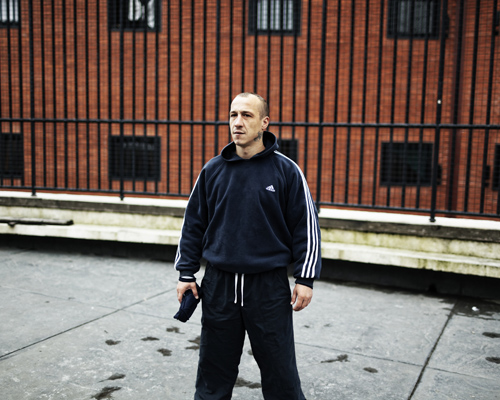
An inmate in the inner yard of Padinska Skela maximum security prison. Beograd outskirts.
The prisoners are walking vigorously. There is no view on the outside. According to the spokesman of the institution, it is planned to install plants in the promenades yard. Some inmate may work in the envelope fabrication workshop, be a part of a painting class, one of them built a replica of the prison of around 1m75 in diameter.
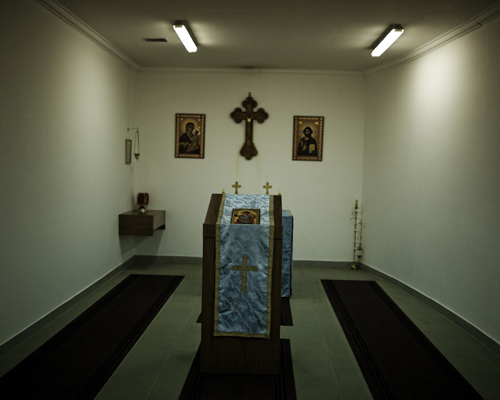
Chapel of the Padinska Skela maximum security prison. Beograd outskirts.
The facility is one of the latest built and is housing around 150 prisoners in good conditions. The average sentence is around 20 years, the minimum being 15 years and the maximum up to 40 years. Crimes committed by the detainee are of a wide range: organized crime, rape, murder, conspiracy.
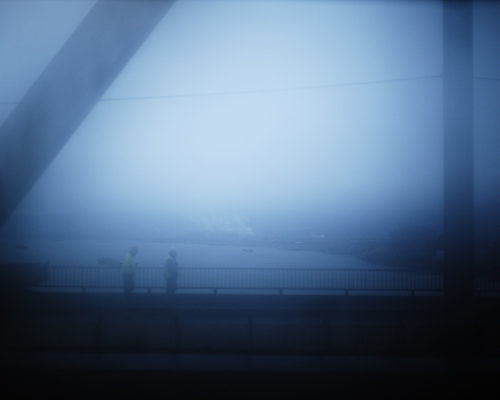
Pančevački bridge.
"My father fought the war in Bosnia, he told that if it were to happen again, he wouldn’t hesitate to leave."
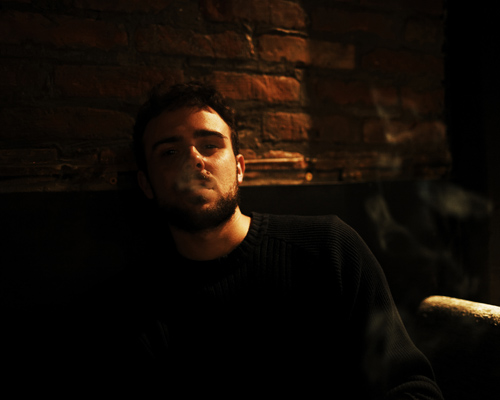
Aleksandar.
"It’s not that hard to be gay in Belgrade; I kissed a guy in the middle of a nightclub, and I have never had any problems. Upcountry is another story."
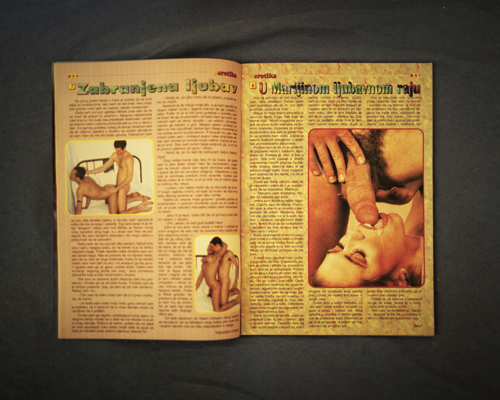
PanErotica, Serbian porn magazine, late 90’s edition.
"Together with friends who are also HIV positive, we started an NGO in 2010. There is now after ve years around 120 people that use ou services. We distribute medicine, for people in and out of Beograd. HIV positive individuals are exposed to discriminations, in a hospital for example..."
Đurica Stankov discovered when he was a young teenager that despite being homosexual he could have sex with women too. From his childhood to his early 20’s he experienced an incredibly di cult life (his rst marriage at 15, buried his mother and two of his kids before turning 20 for example). Later his drunk boyfriends sold the intimate photo of them. That and his «bisexuality» got him into the porn business, in Serbia, in Hungary. Unlike western actor and actress, it wasn’t a lot of money.
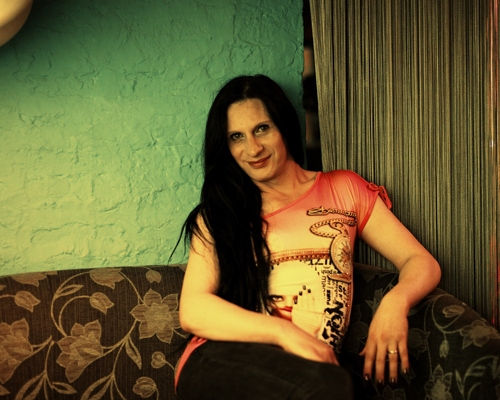
"I’m Gordana Mitrovic, 42 and transgender. What I do for a living... activism, giving lectures... I’m in public life for ve years. I was the main character in «When I was a boy, I was a girl». It is a short documentary which was featured in Berlin lm festival, it was in the nal round for the reward in its category.
I’m mostly an activist on transgender issue, but also on women and children violence. People like me are normal, we didn’t fell from Mars. We are outside the law here, no status... Because of that, I had to be Goran Mitrovic until I was 35.
When I acted out as a woman, I faced verbal violence and discrimination every day. Then I realized that I didn’t need permission from anybody to be happy. It was also a bit difficult when I told my family, they didn’t take it very well... I told them, either you are accepting me or not, and now we are in excellent terms."
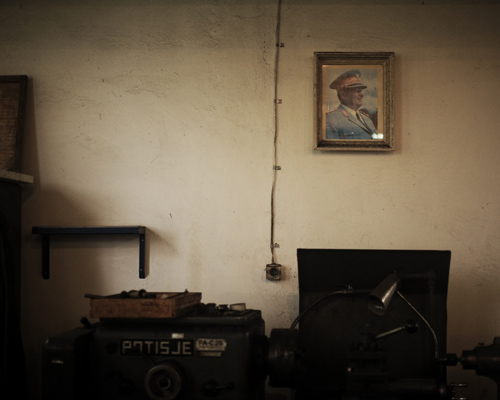
Josip Borz Tito portrait in a workshop of Padinska Skela correction facility, Belgrade outskirts.
"I lived in Beograd all my life, my parents moved to Novi Beograd when I was one (late 1980’s), before that we were at my grandmother place. At that time, it was possible to buy a at and to live an ordinary life."

Goran, Serbian patriot, a member of the war veterans association and former security worker.
"I just want to say that people shouldn’t say bad things about Russia or Serbia."
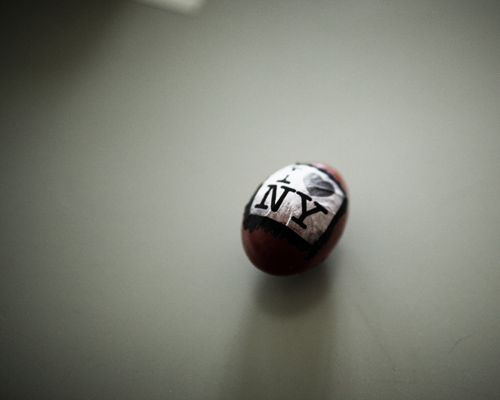
Easter egg. Serbia is mostly Orthodox Christian. For Easter, there is the game of cracking egg: two people competes by holding their egg in their hand and tapping at each other’s egg. The goal is to crack the other player’s egg. The winner takes the opponent’s egg.
"If people had to choose, I suppose they’d go toward occident... Russia is popular, they were here during the oods, but they only help when things are bad and not in the long run."
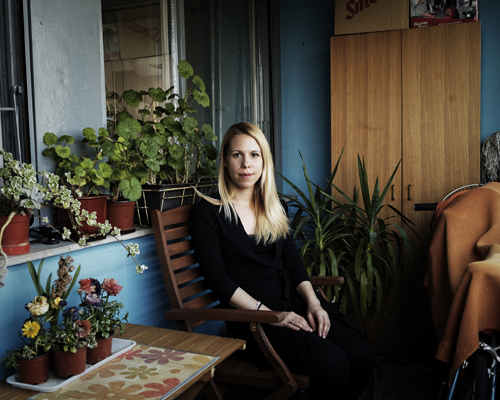
Aleksandra, 30 years old, English teacher at Beograd University.
"In 1994, I was 8, the wars in Bosnia and Croatia started. I don’t remember very well this one, but I have clear memories of the 1999 bombings. There was no sign of war in Beograd in 1994, but I have family in Bosnia, and we couldn’t go there for a while... I was just upset that we were not able to visit my cousin as often as we wanted.
In 1999, I was 14. I was going to enter high school. We didn’t go for a while. When there was this alarm for the bombs, peoples were supposed to run to shelters, but we weren’t because they didn’t have an emergency exit, and Novi Beograd was not that much a target.
At rst, people were furious because of the bombardments. I went to protest with my mother, we put target badges on ourselves, there were concerts, it was an anti-war protest. After a while when they started to hit schools and hospitals it became apparent to us that they could target those kinds of gathering, so it wasn’t safe anymore. In the beginning, they were aiming at military buildings, but they also hit media buildings and in the end bridges as well."
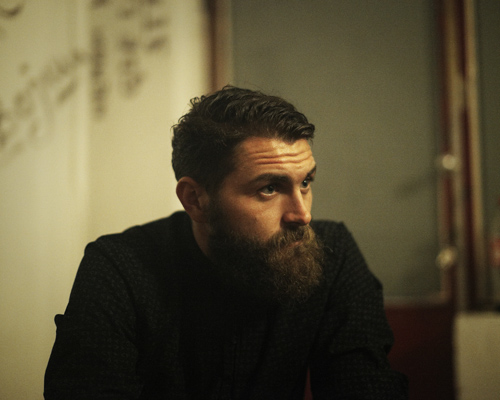
Dušan. born in 1989.
"I work as a dispatcher for a USA ATM xing company. I work at night while it’s the day there. Yesterday I was working Miami. Workers are mostly nice guys, they ask questions (i have an accent). One of them was a former USMC, they got an interesting story to tell.
My family comes from Bosnia. We are living in a house near Borča. My father and uncles are housing our grandmother, they take turns. As they lost pretty much everything during the war and they came here, they are building us (my brothers, cousins) houses so that we can live together. I suppose that it was the dream life they wanted and that they lost, but it is not necessary what we the youth want."
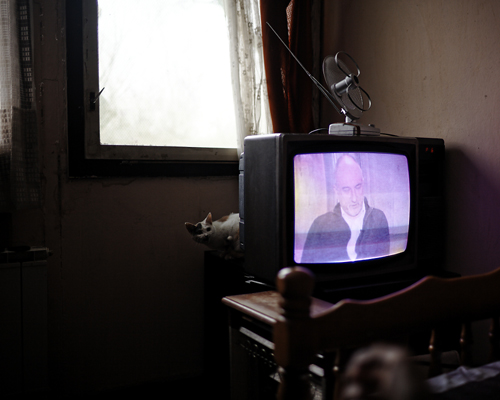
Krnjaca refugee camp.
"I lived in Belgrade for 23 years, since 5 years I'm in here. I was born in Croatia, 1954. I graduated from Political Science faculty in Zagreb, my first solo exhibition was in late 70's. I worked as a clerk. In 1986 I decided to commit myself entirely to painting, but my studio burned down. Then I moved in Serbia, worked as a caretaker..."
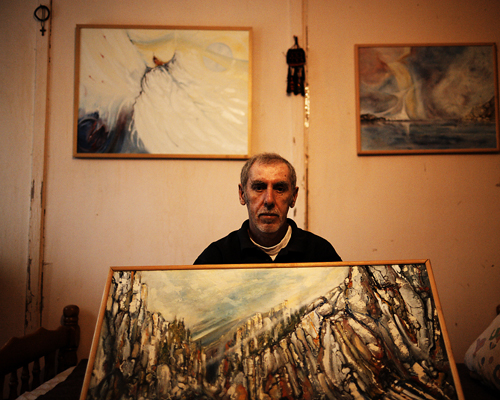
Duro Maodus, painter, Krnjaca refugee camp.
"Art is the possibility of everything. If you don’t listen to your inner voice, you can end up in crime, apathy, dark thoughts. You could stop painting while a good picture is a way to get through. I don’t have money for an exhibition in an art gallery, but it is my dream, to show that no matters the situation, something is possible through art. Maybe I’ll succeed... We’ll never know."
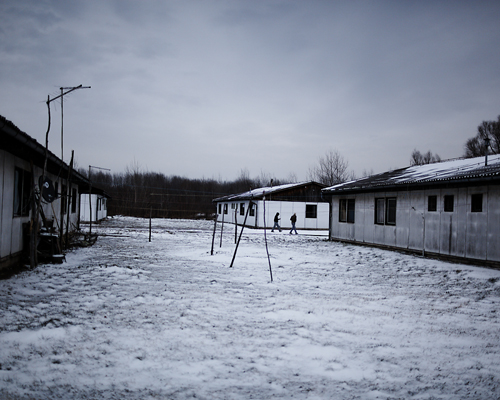
Krnjaca refugee camp.
"I’m not a nationalist, and I don’t want to praise my country. The truth is we are small people, but we have very talented people in the area of arts and sports.
Who knows what’s going to happen ?"
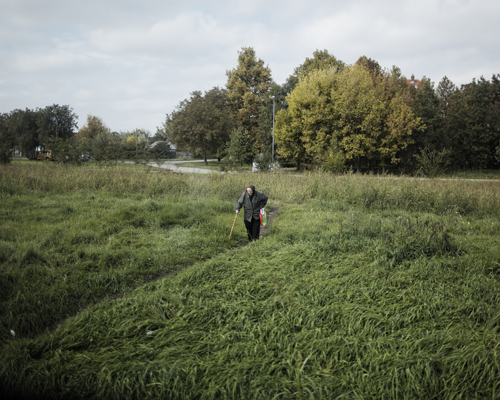
An old lady goes to the bus to Belgrade.
"There was this change in everyone’s attitude, and all of a sudden all were scared for their life. Those bombings were supposed to unite people against Milošević, but it was the other way around. Of course, everyone wanted this guy out of the place and everything, but it united people against NATO instead because they were bringing death to your family."
